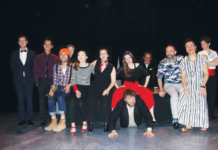All BIPOC students are encouraged to apply for this workshop. To learn more, please visit the Wellness Collaborative website. The deadline for applications is Feb. 4, 2022.
The University of Waterloo, in partnership with the University of Guelph (UoG) and the University of British Columbia (UBC), is hosting a free, online workshop titled “Elevating Voices of Food Insecurity.” This workshop will use digital storytelling to highlight Black, Indigenous, and People of Colour (BIPOC) experiences with food and cultivate important conversations around the issue. Each participant will create a 2-4 minute digital story using WeVideo to detail their accounts of food insecurity, and by way of this, assist in the development of UW’s food-secure strategy.
In this four-week-long workshop, students will partake in group sessions, live interactive tutorials and one-on-one meetings with facilitators that will equip them with the skills needed to craft an engaging digital narrative. The workshop will commence on Saturday, Feb. 12 with sessions on the following four consecutive Saturdays (Feb. 19, Feb. 28, Mar. 5 and Mar. 12). To show appreciation for their time and contribution, each participant will receive a $400 stipend (an amount informed by living wage rates) upon completing the program.
Following the workshop, all participating universities will host a screening on their respective campuses to share the videos with relevant individuals like activists and advocates of food security. Students are free to decide if they would like their stories to be shown.
This project is being facilitated by the Re•Vision Centre for Art and Social Justice, an arts methodology research hub at UoG that organizes digital storytelling workshops to help initiate conversations on injustices in various sectors such as healthcare, education and the arts. Nicole Pin, a Registered Dietician at UW Food Services, and Kalpita Gaitonde, a Health Promotion and Evaluation Specialist at Campus Wellness, are leading UW’s participation in this project.
Pin believes that “Elevating Voices” will be a great learning experience for students, stating, “they’ll gain some excellent technical skills [and] they’ll have the opportunity to engage creatively in a very meaningful way to tell their own story.” She added that students will be working within a safe environment as facilitators are trained to help them through any emotional disturbances that may arise during the process.
Additionally, participants will help with the formation of UW’s strategy to eradicate food insecurity on campus. “We’re trying to see…what may be some of the ways in which we can involve students [so they] feel like they have an ownership [over] the creation of the strategy,” Gaitonde explained. “If our UW students… are involved in [this], other students might feel like they see themselves in it and they might even be encouraged [to come out] with their stories if they need to.”
Both Pin and Gaitonde hope that this project will remove some of the stigma around food insecurity and consequently, reduce the reluctance to access available support on campus. “I think we need to spread the message loud and clear that food is a basic human right and we’re entitled to have appropriate, adequate food at all times for all meals…Our dream goal is that no individual on our campus community goes hungry for any meal,” Pin said.































